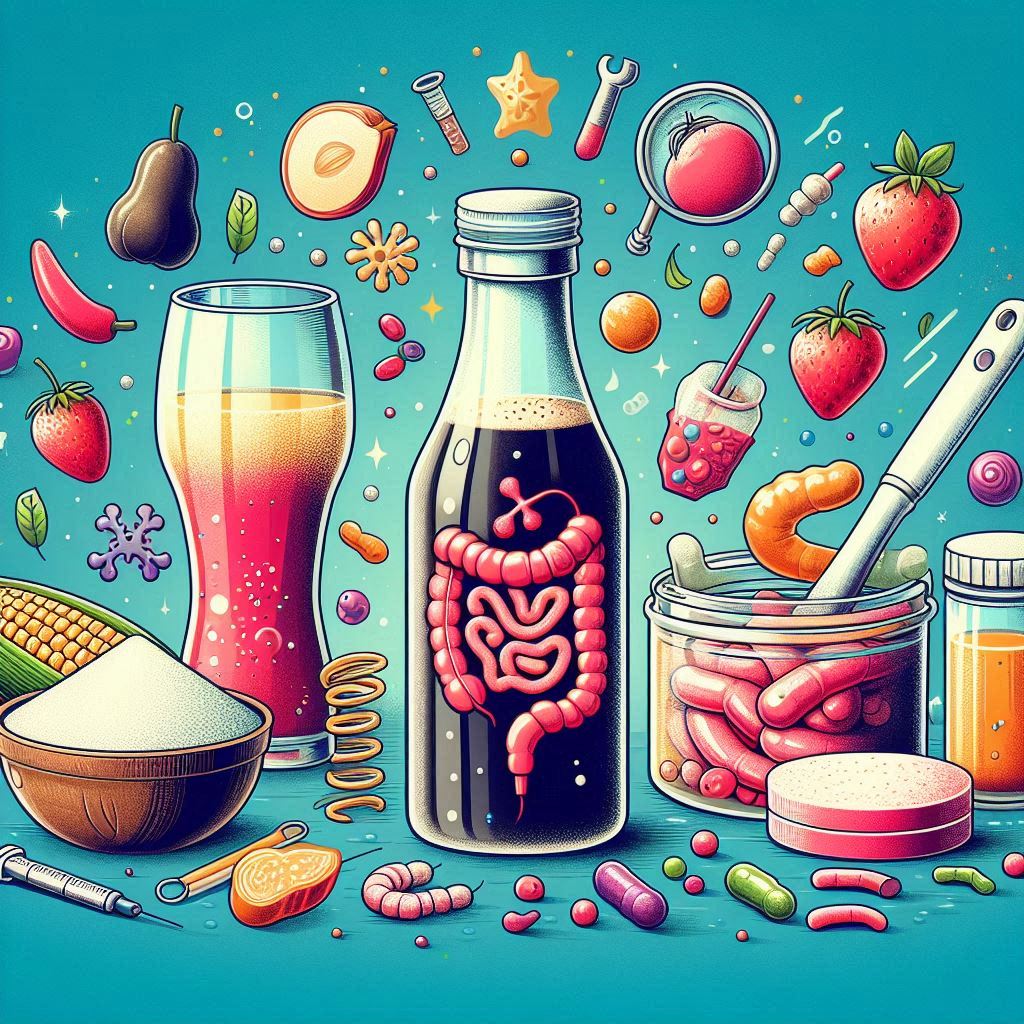Aren’t the Gut Health Boost You’re Hoping For

Marketing buzzwords fall flat, says a microbiome scientist
The newest trend in health-focused fizzy drinks is all about gut health—or so the packaging says. Brands like Poppi and Olipop have exploded in popularity, especially on social media, boasting slogans like “Supports Digestive Health” and “Prebiotics for a Happy Gut.” From viral TikToks to high-profile Super Bowl ads, these beverages have positioned themselves as the smarter, healthier soda alternative.
But not all that fizzes is gold. In fact, one of these companies—Poppi—is currently facing a class-action lawsuit for what plaintiffs claim are exaggerated and misleading health claims. As someone with a PhD in microbiome science, I can confirm: the science simply doesn’t support the hype.
These sodas may be a clever concept, but they fall far short of delivering meaningful benefits to your gut microbiome. Let’s take a step back and break down what this really means—starting with the basics.
What is a Prebiotic soda ?
Prebiotics are specific types of fiber or other non-digestible compounds that feed the beneficial bacteria in your gut, especially in the large intestine. They’re not alive (like probiotics) but rather act like “fertilizer” for the good microbes that already live in your body.
To qualify as a true prebiotic, a compound must:
- Be resistant to digestion in the stomach and small intestine
- Reach the colon intact
- Selectively stimulate the growth or activity of beneficial bacteria (like Bifidobacteria or Lactobacilli)
Classic prebiotics include inulin, fructooligosaccharides (FOS), and galactooligosaccharides (GOS)—fibers found in foods like onions, garlic, bananas, and asparagus. Importantly, for any prebiotic to work effectively, it needs to be consumed in sufficient quantities.
Prebiotic soda vs. Probiotic soda : What’s the Difference?
- Probiotics are live bacteria (found in yogurt, kimchi, kefir) that can benefit your microbiome when consumed in the right amounts.
- Prebiotics, on the other hand, are food for those bacteria, helping them grow and function better.
Think of it this way: probiotics are the seeds; prebiotics are the fertilizer. You need both in the right context to grow a healthy garden in your gut.
So, What Makes These Sodas “Prebiotic”?
Brands like Poppi and Olipop include small amounts of fiber, usually in the form of inulin from chicory root, to back up their claims. In theory, this should make the drinks “prebiotic.” But here’s the problem:
- The actual dose of prebiotic fiber in a can is often just 2 to 9 grams.
- Most studies on prebiotics use at least 10 grams per day, and often more.
- Many of these sodas also contain sweeteners and additives that may counteract or reduce any minor microbiome benefit.
So while it’s technically accurate to call these sodas “prebiotic,” the dose is too small to offer clinically meaningful benefits to your gut bacteria.
Is Prebiotic Soda Actually Helping Your Gut?
Let’s be honest: replacing a high-sugar soda with a lower-sugar, fiber-enhanced soda is a step in the right direction—especially if it helps you cut back on sugary drinks.
But from a microbiome science standpoint, these drinks won’t revolutionize your gut health.
If you’re looking to:
- Improve digestion
- Support your immune system
- Reduce inflammation
- Improve metabolic health
…you’ll be better off getting prebiotics from whole foods like fruits, vegetables, legumes, and whole grains. These provide not just fiber, but also polyphenols, vitamins, and other nutrients that support a diverse and healthy microbiome.
The Bigger Issue: Marketing vs. Science
Prebiotic sodas are an excellent example of healthwashing—the practice of giving a product a health halo through strategic labeling, without strong evidence to support the claims.
It’s not just misleading—it’s potentially damaging. When people think they’re “doing something great” for their health by drinking a fancy soda, they may skip the foundational steps that really matter: eating more plants, exercising, sleeping well, and reducing stress.
And that’s where the disappointment sets in. These drinks are marketed as microbiome magic, but the science just doesn’t hold up.
Final Thoughts: A Gimmick, Not a Gut Game-Changer
The idea of prebiotic sodas is clever. The execution? Not so much.
Yes, they may contain small amounts of beneficial fiber. Yes, they’re better than traditional sodas. But no, they are not a substitute for a diet rich in whole plant foods or a serious strategy for supporting gut health.
So enjoy them if you like the taste—but don’t expect your microbiome to thank you.



